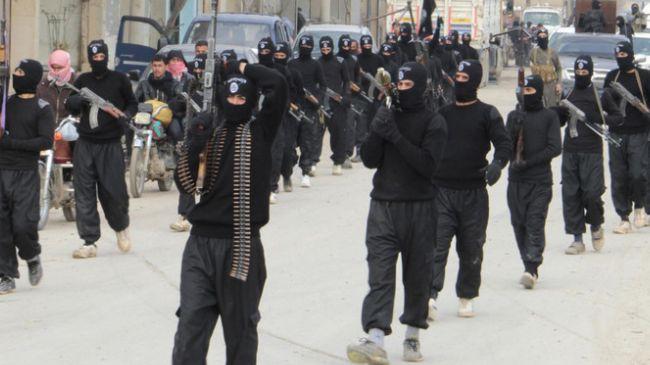
The American public is horrified by the terrorist group ISIL’s beheading of journalists, systematic civilian killings, and public shootings of homosexuals in the presence of children.
However, while the inherent injustice of these actions is basically agreed upon in America, the role that Islamic doctrine plays in justifying ISIL’s actions, or in not justifying them, is still under debate.
President Obama has argued that the actions of ISIL are completely separate from Islamic doctrine. On September 10th he said, “Now let’s make two things clear: ISIL is not ‘Islamic.’ No religion condones the killing of innocents. And the vast majority of ISIL’s victims have been Muslim.”
The second part of this statement is true; many Muslim people who have suffered at the hands of ISIL would denounce the actions of the terrorist group as abhorrently unjust.
However, the statement that ISIL is not Islamic is simply not true. As Alastair Crooke points out in his article, “Obama Is Wrong That ISIS Is ‘Not Islamic,’” the leaders of ISIL assert that they are followers of ‘true Islam.’
Crooke is careful to explain that, in reality, the concept of ‘true Islam,’ is nonsensical; Islam has historically represented a large umbrella that covers a wide variety of beliefs and teachings. However, Crooke writes that “there is one contemporary orientation that does make the big claim of being ‘true Islam’: Wahhabism.
The leaders of ISIL are followers of this interpretation of Islam. Therefore, though they most definitely differ from many Muslims in their worldview, it would be simplistic and erroneous to deny the fact that ISIL bases its beliefs in Islamic doctrine.
Now, Obama’s statement was perhaps not presented literally but instead with the political goal of preventing Islamophobia and discrimination against Muslim Americans in the face of ISIL’s violence.
This goal is a fair one; it is terribly unfortunate that American ignorance regarding Islam has contributed to the vandalizing of countless mosques and discrimination of millions of American Muslims.
But it is important to remember that Islam, like many other religions, can and has inspired violence by extremist groups. And in order to put an end to this violence, it is vital that we as a society can openly criticize the doctrines of Islam, just as we criticize other religious teachings, without misinterpreting this criticism as a condemnation of Muslim people.
As Sam Harris, American author, philosopher, and neuroscientist, points out, “The crucial point of confusion is that we have been sold this meme of Islamophobia where every criticism of the doctrine of Islam gets conflated with bigotry toward Muslims as people.”
It is okay to take issue with the fact that the Quran contains at least 109 verses that call Muslims to war with nonbelievers for the sake of Islamic rule, often calling Muslims to chop off heads and fingers and kill infidels. This does not mean that those who condemn the violent language of the Quran condemn Muslim people. Nor does it seek to further the misconception that all Muslims literally follow this violent language in practice, which is clearly not the case.
However, the sensitivity surrounding Islamophobia has prevented our society from being able to criticize the ways in which Islamic doctrine has the potential to contribute to violence, as well as discrimination against women and homosexuals. And when a society is unable to criticize injustice, it cannot put an end to it.
Just as we have criticized other religious texts for promoting violence in the past, we must be able to criticize Islamic texts for their potential to contribute to violence in the Muslim world. For example, many Muslim scholars interpret the Quran as stating that apostasy, or the abandonment of Islam, is punishable by death. According to a Pew Research Center report, 88% of Egyptian Muslims and 62% of Pakistani Muslims favor death as a punishment for apostasy.
Just as Islam can contribute to a lack of religious freedom, it can also contribute to the suppression of women. In many Islamic countries, people interpret Islamic doctrine to demand that women wear moderate clothing and a hijab, or head covering. Though some argue that Islamic doctrine actually promotes gender equality, the practical application of Islamic doctrine has the potential to contribute to female suppression.
These crimes against humanity are not limited to Islam. Just as ISIL commits evil acts in the name of Islam, Christians led crusades and fought wars in the name of their religion. All of these injustices against innocent people warrant societal condemnation. This does not imply a denunciation of religions on the whole or their followers. Instead, it allows society to establish the fact that, oftentimes, religious texts, if interpreted in the wrong way, can contribute to violence and injustice.
A fear of offending religious followers should not stop us from recognizing the potential for a connection between religion and violence, because if we fail to recognize or acknowledge this connection, we can never put an end to religiously inspired injustice.
 Emma Lux is a freshman in the College. Millennial Voices appears every other Monday at thehoya.com
Emma Lux is a freshman in the College. Millennial Voices appears every other Monday at thehoya.com















Arafat • Nov 20, 2014 at 9:04 am
Great article Emma! But let me add one thing to it.
The Christian Crusades – as awful as some of it was – were forced on Christians by Muslim jihadists. Specifically, within 300 years of Mohammed’s birth he and his followers had violently conquered the Middle East, North Africa, huge sections of Asia, Spain, Portugal, Southern France, Sicily and these blood-thirsty jihadists had their eyes set on Rome.
All this happened during Islam’s “formative years” and this tells us more clearly than anything about the true essence of Islam.
Anyway, getting back to my timeline, Muslim jihadists had their sights set on Rome and it was only then – only after three centuries. of Muslim aggression – that the Pope declared the First Crusade.